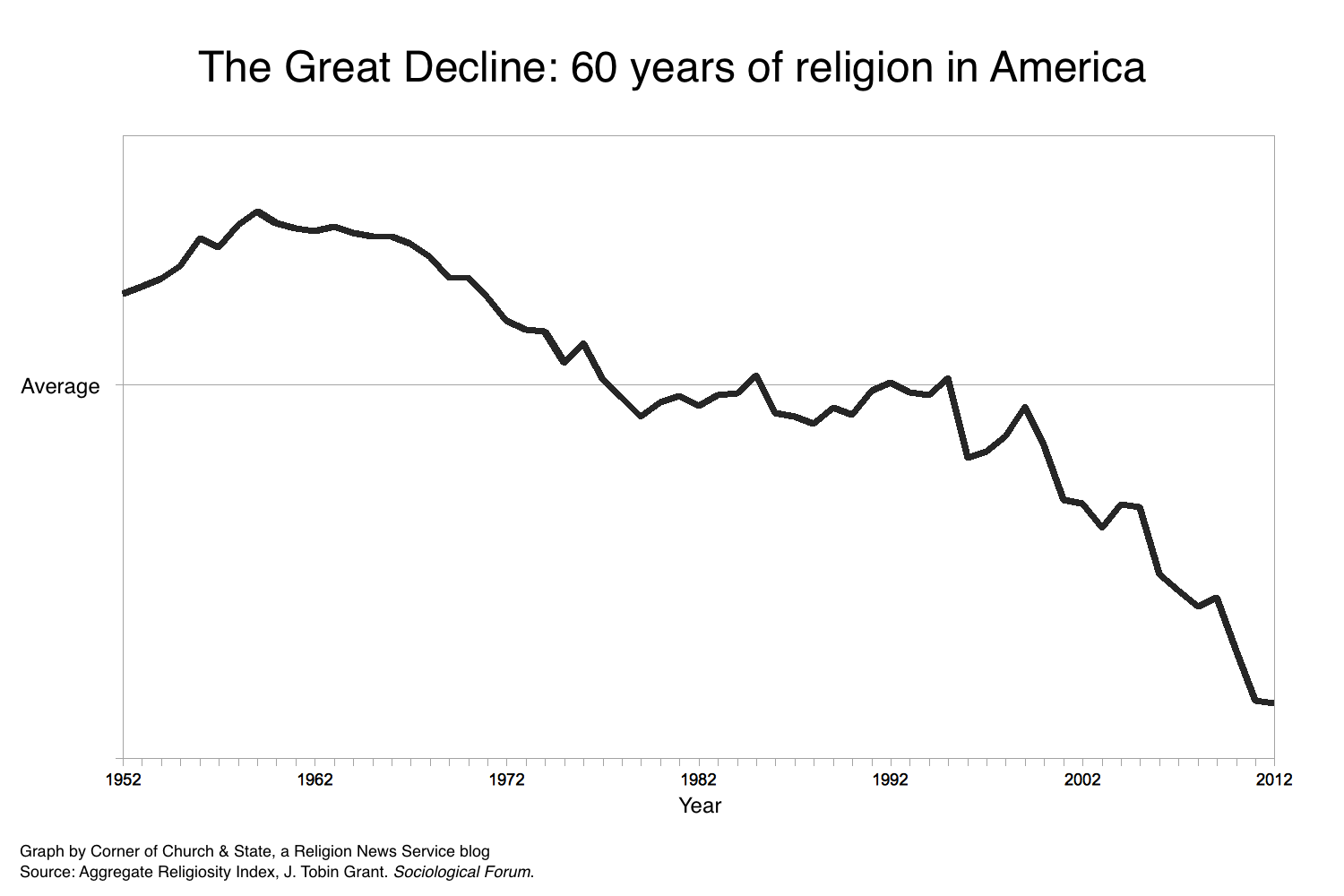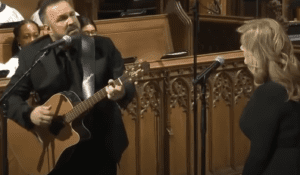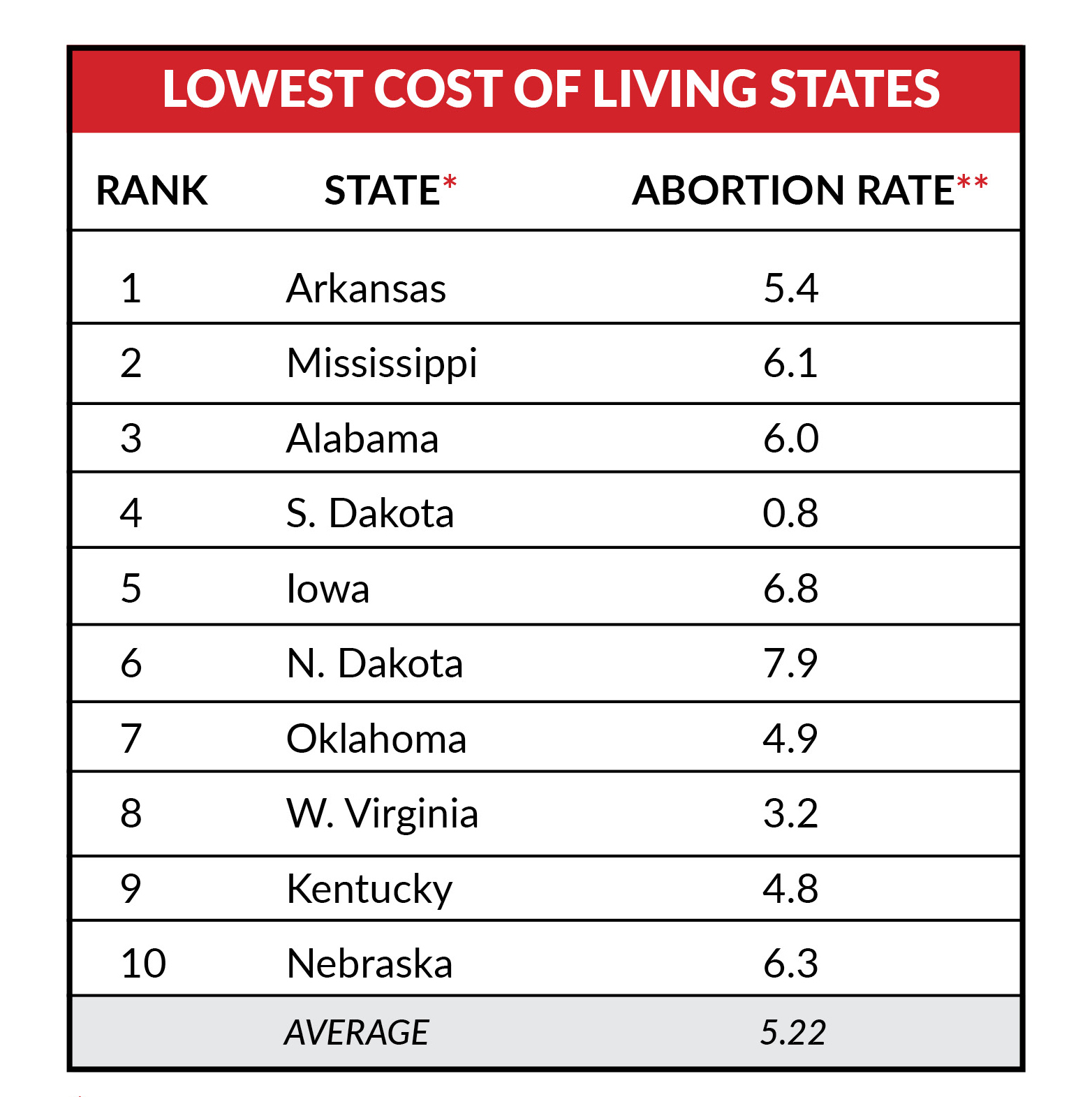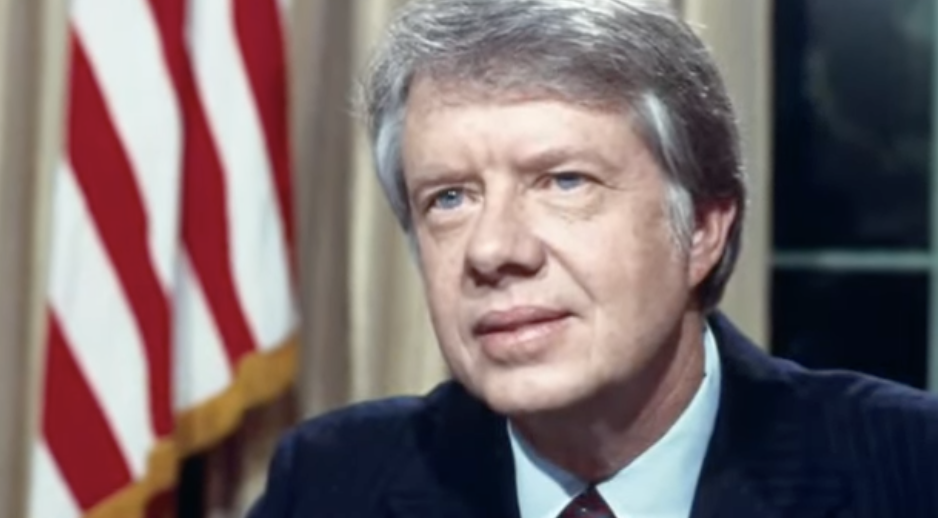By Tom Quiner
Love is the antidote for abortion. The more love in the world, the less desire to destroy God’s creation, who are the unborn. Each person is made in the image of God, so each abortion is a desecration of God’s gift to humanity: His children.
 This blogpost begins our countdown of the top 52 love songs ever. Remember, this is my list, yours will be different, and I want you to share them with this blogpost as the year progresses.
This blogpost begins our countdown of the top 52 love songs ever. Remember, this is my list, yours will be different, and I want you to share them with this blogpost as the year progresses.
Good love songs, no matter how secular, are an antidote for a culture that craves love, but doesn’t know it. God is love. Therefore, love songs promote God, because they are life-creating.
Love songs are not mere escapism
Music historian, Ted Gioia provided a secular viewpoint on the value of love songs in his book, “Songs: The Hidden History”:
“People are wrong to view these songs as mere entertainment or escapism. The purpose of a successful love song is to create love. The first love songs were part of fertility rites and they aimed at changing the world, not just describing it. When the Beatles sang ‘All You Need Is Love’ or John Coltrane performed ‘A Love Supreme’, they wanted to transform the world in which they lived. And on a personal level, many of us would not be here today if our parents hadn’t heard a love song at the right time and place. Those love songs aren’t just life-changing, they are life-creating.”
Paul McCartney’s twenty-seventh #1 hit!
#52 on my list is Paul McCartney’s 1976 hit, “Silly Love Songs.” The song was McCartney’s 27th number one hit single.
In reality, I have many other love songs I like more than this one that didn’t make this list. But “Silly Love Songs” came into existence for the very reason expressed by Ted Gioia: the world needs them.
McCartney wrote this song in direct response to a cynical put-down directed at him by his former bandmate and collaborator, John Lennon. Lennon was a singularly unpleasant personality who slurred McCartney for writing “silly love songs” and “sentimental slush.”
I have logged my feelings on Mr. Lennon’s songs in previous blogposts. [See “John Lennon’s most obnoxious song.”] Suffice it to say, none of Lennon’s solo efforts made this list.
Lyrics matter as much as the music when it comes to love songs. Music revivalist/singer/pianist Michael Feinstein mused that what’s wrong with modern love songs is that they lack wit.
McCartney is one of the greatest songwriters of his generation, and he understands wit.
A witty riposte
The refrain of ‘Silly Love Songs’ provides a witty riposte to Lennon’s sardonic putdown:
“Love doesn’t come in a minute,
Sometimes it doesn’t come at all,
I only know that when I’m in it,
It isn’t silly, love isn’t silly, love isn’t silly at all.”
Thank-you, Paul McCartney! That was enough to earn your place on this list! Here’s what he has to say about this song:
“I thought, Well, I know what they mean, but, people have been doing love songs forever. I like ’em, other people like ’em, and there’s a lot of people I love — I’m lucky enough to have that in my life. So the idea was that “you” may call them silly, but what’s wrong with that?”
John Lennon’s issue was war; so is ours, only ours is the war on the unborn. Sadly, the peace and justice crowd morphed from an anti-war movement in the 1960s into a pro-abortion movement in the 1970s (not that Lennon was necessarily pro-abortion himself).
Silly Love Songs is a delightful response to cranky progressives who tear down everything they touch.
I’ve noticed something interesting about “Silly Love Songs.” It isn’t often covered by other artists, unlike many of the upcoming love songs on this list. Go figure.
Director Baz Luhrmann included an excerpt in his 2001 musical, “Moulin Rouge!” starring Nicole Kidman and Ewan MacGregor (below).
Here’s a cover by the South Australian group, Hindley Street Country Club:
There’s nothing silly about love. It’s what makes the world go ‘round! (Sounds like a great song idea!)
What are your favorite love songs? Leave your comments with as much detail as you’d like.
See you next week with #51 on our list. You’re going to love it!
[If you like this blogpost, be sure to share it. Then donate to help spread pro-life love.]
 Love songs make us happy. They rekindle delightful memories and remind us of the people who matter most in our lives. Interestingly, contemporary songwriters are composing fewer love songs these days, as I’ve written before. There’s a reason love songs began a precipitous decline beginning in the mid nineties: Roe v Wade.
Love songs make us happy. They rekindle delightful memories and remind us of the people who matter most in our lives. Interestingly, contemporary songwriters are composing fewer love songs these days, as I’ve written before. There’s a reason love songs began a precipitous decline beginning in the mid nineties: Roe v Wade.
Bear with me. The Roe decision hit on January 22, 1973. The decision devalued human life by affirming your worth was conditioned on another person or persons. And it devalued human sexuality by removing the self-giving, life-giving beauty of sexual intimacy. It turned sex into simply a physical act and removed the dignity and spiritual implications. In other words, the generation that grew up after Roe confused real love with the sex act.
An attack on human dignity
Roe was a headlong attack on the inherent, God-given dignity each person possesses, as proclaimed in the sacred texts that spawned Western Civilization.
Roe was a repudiation of the very meaning of life. It suggested that your life had absolutely no intrinsic meaning, because it made it contingent on another person.
The Roe generation came of age in the 1990s. That generation’s songwriters slowly, but surely, stopped writing love songs. After all, they grew up in a milieu that devalued human life and the Judeo-Christian underpinnings that animated our belief in the sanctity of life.
Christian scripture tells us God is love. So love songs are all about God and His creation, whether the composer realizes that or not.
What does the world need?
I recently heard a Sister of Life speak. Sister Bethany Madonna asked, “What does this culture need? What does the world need? What the world needs now … is love sweet love.”
And with that simple phrase, ‘love sweet love,’ she and an audience of 50,000 people were instantly connected. Everyone knew what was coming next as she sang, “It’s the only thing that there’s just too little of.”
The power of a love song!
The Jewish born songwriters, Burt Bacharach and Hal David, had no idea that their love song, “What the World Needs Now is Love,” would be invoked at a Catholic Eucharistic Congress 59 years after they penned this gem.
52 Greatest Love Songs Ever
The world needs love songs as an antidote to this culture of death. That’s why Pulse’s blogpost is going to reveal to you the “52 Greatest Love Songs Ever” over the next year.
Once a week, we will unveil a legendary song which can serve as an antidote to the apathy and cynicism bred by the culture of death.
A freelance music blogger named DJ Rob actually tracked the decline of the love song by analyzing Billboard’s Premier Singles Chart. He tallied the number of #1 songs with the word ‘love’ in the title decade by decade. Here’s what he discovered:
1960s: 23 love songs
1970s: 26 love songs
1980s: 25 love songs
1990s: 24 love songs
2000s: 7 love songs
2010s: 5 love songs
Again, the drop kicked in around 1994 as the Roe generation came of age. Sadly, when you listen to a contemporary song that invokes the word ‘love’ in the title, you quickly hear that the song has nothing to do with love. Take Jason Derulo’s #1 hit, “Savage Love.” The title itself is a tip-off that this song isn’t really about love as, let’s say, a St.Thomas Aquinas would define love. Especially when Derulo purrs:
“When you kiss me, I know you don’t give two f*#ks … but I still want that.”
Ugh.
Aquinas says that to love is to will the good of the other. This blog is going to look at the great love songs that helped to civilize a nation. These are the songs that soften your heart and indirectly remind you that God is Love.
Different types of love songs
Just as there are different types of love, there are different types of love songs, including:
- Young love (or new love)
- Romance
- Torch songs
- True love (aka agapé or sacrificial love)
The ’52 greatest love songs ever’ that you’re going to hear are my list. Yours will be different than mine. In fact, my list is constantly changing. But I have given great consideration to this list. These are the songs that have affected my life in wonderful ways.
I hope it does the same for you.
Be sure to subscribe to our blog for a weekly dose of love.
Tomorrow kicks off this series with song #52 on my list, written by a songwriter EVERYONE reading this knows. It’s a song that explains the necessity of my list.
[If you like this blogpost, be sure to share it. Then donate to help spread pro-life love.]
By Tom Quiner
I read two glowing reviews of the movie, “The Brutalist.” Said Brian Tallerico, reviewing the film at RogerEbert.com,
“the very existence of “The Brutalist” feels like a miracle: An original story shot on VistaVision cameras, released in 70mm, complete with overture and intermission. It’s a film that turns inward into itself, winding its themes around its characters like a great American novel.”
Over at the Wall Street Journal, Kyle Smith gushed:
“A great American director has announced his presence with a majestic, complicated, somewhat vexing and altogether entrancing film. His name is Brady Corbet, he is 36 years old, and the feature he directed and co-wrote with his life partner, Mona Fastvold, is called “The Brutalist.”
I bit, and went and saw it with a buddy. The movie ran 3 1/2 hours (you read that correctly) including an intermission. From the first scene of an inverted view of the Statue of Liberty to the final scene, an inverted view of a cross, I was subjected to two-hundred dreary minutes of anti-American-exceptionalism, anti-Western Civilization, anti-Christianity, and anti-capitalism propaganda. Dreary, because every scene was dark and murky, an utter waste of VistaVision.
SPOILER ALERT
In sum: the movie was ugly, characterized by a [spoiler alert] homosexual rape scene that came out of nowhere. The rape was perpetrated by the rich American capitalist against the idealistic Jewish architect. Talk about clunky symbolism. To be sure we understand how terrible our country is, the architect’s wife at one point shouts, “this whole country is rotten.” Even Iowa?
I was struck by how many ugly films are made these days, and how much ugly music is being recorded, and how the arts and culture are interconnected with sanctity of life issues. Even architecture is a piece of the cultural puzzle.
Life is creative
Today’s artists have lost sight of the art of life, which is a path to divine truth, or as Henry James put it, a search for “hard latent value.” Too many, in fact, turn and run in the opposite direction which limits their creativity. Life is creative, because it flows from God, who is Divine Truth and Beauty.
“The Brutalist” explores the life of an idealist Hungarian architect who immigrates to the U.S. where he designs buildings in an architectural style called ‘Brutalism.’ Is this ‘brutalism’ the path to divine truth? To the layman, it looks like the structures erected by the old Soviet Union: cold and soulless. Architectural Digest described it this way:
“If modernism is about architecture being honest, Brutalist design is about architecture being brutally honest,” Geddes Ulinskas, principal of Geddes Ulinskas Architects, adds. “Forms are as simple as can be and materials are stripped to be as bare and raw as possible.”
Lots, and lots of concrete is used. Here are a couple of examples here in Iowa:
1st United Methodist Church Education Building, Iowa City IA
University of Iowa College of Dentistry
PHOTO CREDIT: Steve Stimmel
By and large, the public doesn’t like the look of these structures. National Public Radio ran a story on the subject last year, focusing on the proliferation of brutalist design in Washington DC.
They interviewed people in front of the sprawling brutalist J. Edgar Hoover Building (above) of the Federal Bureau of Investigation and got an earful. Not one person had something positive to say:
“I can’t stand it,” said Arielle Carani, a 24-year-old from Chicago. “I work right across the street from it, so I have to look at it every day that I’m in the office. And it’s just so ugly.”
Darren Williams, a 29-year-old from Michigan said, “It kinda looks like a prison with windows. Just a concrete slab stuck in the middle of a city.” And Devon Akmon, a 48-year-old from Ann Arbor Michigan said it looks like “a mass of stone and glass without much architectural detail.”
The president responds
Interestingly, upon returning to office last month, President Trump took an immediate swipe at brutalist architecture with an executive order (EO) promoting beautiful federal civic architecture. The EO advances a policy that …
… Federal public buildings should be visually identifiable as civic buildings and respect regional, traditional, and classical architectural heritage in order to uplift and beautify public spaces and ennoble the United States and our system of self-government.
‘Classical’ is the antithesis of ‘brutalism.’
‘The Brutalist’ film is a box office bust with only $12 million in box office receipts in the U.S. to date. Why does Hollywood keep cranking out movies the public doesn’t like anymore?
The answer is there has been a growing loss of faith in Hollywood and most of the art world. People don’t like films like “The Brutalist” because they’re ugly, conceived and manufactured by faithless artists. If anything, the music world was hit even harder.
Robert R. Reilly, author of “Surprised by Beauty,” identified why the creative class loss sight of the art of life:
“The single greatest crisis of the 20th century was the loss of faith. Noise — and its acceptance as music — was the product of the resulting spiritual confusion and, in its turn, became the further cause of its spread.”
As twentieth composers turned away from God, their music became increasingly atonal and ugly, rather than rooted in emotions and beauty.
Listen to some atonal music …
Now listen to some emotive and beautiful music …
The poisonous fruit of Western Civilization’s spiritual crisis, in hindsight, became manifest in 1994 when something odd began to happen. Composers of popular music stopped writing love songs.
What was significant about 1994? That’s the year the Roe v Wade Generation came of age. This is the generation raised in the milieu that bold and loudly proclaimed that human life had no intrinsic value … unless he or she was wanted. Legal abortion was the fate for those unfortunate millions of souls who were unwanted.
Love lost meaning to this generation. Church attendance began to slip when Roe was decided in 1973, as you can see in the chart below, and it began to plummet by 1994.
The end of love?
Blogger DJ Rob tracked the decline of love songs in a fascinating blogpost. In the 1960s, 23 songs with the word ‘love’ in it topped the charts. In the 1970s, it was 26; in the 80s, 25. Although there were 24 in the 90s, most of those were front-loaded in the decade.
The 2000s produced but 7 love songs; the 2010s only 5; and a look at Spotify’s top 50 songs today doesn’t have a single entry with the word ‘love’ in the title.
I listen to some of this music. A little of it is good, but most of it isn’t, because it feels manufactured, soulless, and often profane.
Writing in The Atlantic, music historian, Ted Gioia, said “old music is killing new music.” The piece explains that …
“Old songs now represent 70 percent of the U.S. music market. Even worse: the new-music market is actually shrinking.”
Amazingly, the newest tunes represent less than five percent of total streams.
We’re ripe for a cultural renaissance.
We’re ripe for beautiful, new architecture and movies that inspire hope and appeal to our better angels.
We’re ripe for music that embraces melody and proudly proclaims the act of love as the ultimate expression of our humanity.
The world is hungry for artists who realize that since we are made in God’s image, and that God is creative, we are called to creatively explore the good, the true, and the beautiful with our faith as our guide.
Today’s faithless artists have hit a dead end.
As Pope John Paul II said, “politics is downstream from culture.” Let’s change the culture.
 Pulse Life Advocates recognizes that we will never get rid of abortion unless we change the culture. That’s why we publish an annual list of “Top 10 Religious Movies” every Lenten season.
Pulse Life Advocates recognizes that we will never get rid of abortion unless we change the culture. That’s why we publish an annual list of “Top 10 Religious Movies” every Lenten season.
That’s why we’re starting a new, yearlong series beginning Valentine’s Day next week: “52 Greatest Love Songs Ever.” Every week for a year, we will count down another beautiful love song. Why? Because love is the ultimate antidote to abortion.
Our culture has been brutalized by too much bad art. Pulse is going to focus on the art of LIFE, an art form grounded in Love. Check back for an innovative pro-life series that thinks outside the box.
[Support our blog. Donate today to create a culture of life.]
Baby Boy Declared Safe Haven in December
(Des Moines, IA) – Through the Safe Haven Law, a baby boy, born December 3 is now in the care and custody of the Iowa Department of Health and Human Services (HHS) and will be placed with a foster family until permanent placement is determined. This brings the overall total to 74 infants since the law went into effect more than two decades ago. This brings the total to eight cases in 2024, including a baby girl born October 13 and a baby girl born on November 11. In 2023, ten infants were relinquished to HHS custody under the Safe Haven Act.
Iowa’s Safe Haven Act is an option for parents in crisis who determine they cannot care for an infant up to 90 days old. Designated safe havens are locations like hospitals and police and fire stations. Iowa HHS then works to place infants in an approved foster home while awaiting permanent adoption.
If you are interested in becoming a foster parent or adopting a child, visit https://iowafosterandadoption.
The Trump administration continues to advance a pro-life agenda, with two new executive orders in the past week. In vintage Trump fashion, the White House trumpeted these pro-life wins with these words:
“President Donald J. Trump enforces overwhelmingly popular demand to stop taxpayer funding of abortion.”
The Hyde Amendment
The president is reinstating the Hyde Amendment, an amendment that enjoyed bi-partisan support until President Biden rescinded it.
ENFORCING THE HYDE AMENDMENT: On Friday, President Donald J. Trump signed an Executive Order to end the use of Federal taxpayer dollars to fund or promote elective abortion.
-
The Order recognizes that, for nearly five decades, Congress has enacted the Hyde Amendment and a series of additional laws to protect taxpayers from being forced to pay for abortion. Contrary to this longstanding commonsense policy, the previous administration embedded federal funding of elective abortion in a wide variety of government programs.
-
To restore this longstanding policy, the Order rescinds two executive orders from President Biden that violate the Hyde Amendment:
-
Executive Order 14076 imposed a whole-of-government effort to promote and fund abortion and to politicize enforcement of the Freedom of Access to Clinic Entrances (FACE) Act.
- Federal statutes protecting access to emergency medical care for pregnant women under the Emergency Medical Treatment and Labor Act (EMTALA) and protecting personal health information under the Health Insurance Portability and Accountability Act (HIPAA) remain in full effect.
-
Executive Order 14079 recategorized abortion as “healthcare” in order to provide taxpayer funding for elective abortions. This included using Medicaid funding to pay for travel costs for elective abortions.
-
The White House identified ten more pro-life wins achieved by the Trump administration:
-
Reinstated and expanded the Mexico City Policy, ensuring that taxpayer money is not used to fund abortion globally.
-
Issued a rule preventing Title X taxpayer funding from subsiding the abortion industry.
-
Cut all funding to the United Nations Population Fund, which supports coercive abortion and forced sterilization.
-
Signed legislation overturning the previous administration’s regulation that prohibited states from defunding abortion facilities as part of their family planning programs.
-
Fully enforced the separate payment requirement for abortion coverage in Obamacare exchange plans.
-
Stopped the Federal funding of fetal tissue research.
-
Worked to protect healthcare entities and individuals’ conscience rights, ensuring that no medical professional is forced to participate in an abortion in violation of their beliefs.
-
Issued an executive order reinforcing the requirement that all hospitals in the United States provide medical treatment or an emergency transfer for infants who are in need of emergency medical care—regardless of prematurity or disability.
-
Led a coalition of countries to sign the Geneva Consensus Declaration, declaring that there is no international right to abortion and committing to protecting women’s health.
-
First president in history to attend the March for Life.
Good news from Senate confirmation hearings
FBI Director nominee, Kash Patel, announced another pro-life win. He acknowledged that, if confirmed, he will end the targeting of pro-life Americans generally, and Catholics specifically, that occurred in the previous administration. Said Patel:
“There can never a targeting by law enforcement based on people’s faith.”
One of the pro-life’s community’s biggest concerns was the nomination of Robert Kennedy Junior to head the Department of Health and Human Services. This sprawling bureaucracy consumes roughly a quarter of the entire federal government’s budget, providing its Secretary with tremendous clout.
Mr. Kenned has supported the pro-choice position his entire career, but he moderated this position in Senate hearings this week by acknowledging that “every abortion is a tragedy.” He went even further:
“We cannot be a moral nation if we have 1.2 million abortions a year.”
This is a remarkable change of heart for the former Democrat, a party that considers abortion ‘healthcare.’
Mr. Kennedy pledged to honor and implement President Trump’s directive to end taxpayer funding of abortion domestically and abroad. Perhaps more than any previous nominee for HHS, he will address the perils of dangerous abortion drugs, vowing to study the safety of abortion pills.
Can he be trusted? One of the most powerful members of the pro-life community, Marjorie Dannenfelser of Susan B. Anthony Pro-Life America, said she is
“encouraged by Robert F. Kennedy Jr’s confirmation hearings.”
She added a ‘but,’
“We will not score Kennedy’s nomination in committee or on the Senate floor.”
Pulse hopes that if Kennedy is confirmed (still a big if), he is true to his word to implement the Trump pro-life policies mentioned at the outset of this blogpost.
[Do you want the pro-life cause to keep winning in Iowa? Support Pulse with your gift today.]
What a difference. In a manner of days, the pro-life world has changed with the stroke of a pen. President Donald Trump and his administration have made some immediate pro-life policy changes, breathing some sanity back into governance. Here’s a quick list:
1. The government recognizes only two sexes
Human sexuality is based on biblical principles of two genders: man and woman. Western Civilization was built upon the premise. Accordingly, our new 47th president issue an executive order “Defending Women from gender ideology extremism and restoring biological truth to the federal government.” The order goes on to say:
“my Administration will defend women’s rights and protect freedom of conscience by using clear and accurate language and policies that recognize women are biologically female, and men are biologically male.”
2. Human life begins at conception
This remarkable order uses clear language acknowledging human life begins at conception, not birth:
“Female” means a person belonging, at conception, to the sex that produces the large reproductive cell.
“Male” means a person belonging, at conception, to the sex that produces the small reproductive cell.
Also … note the use of the word person. This administration aims to humanize the unborn while the previous worked overtime to dehumanize them.
3. Pro-life prisoners soon to be released?
The Daily Wire reports that President Trump will pardon a number of pro-life activists imprisoned by the Biden Administration. They report:
“The pardons would bring immediate relief to those currently imprisoned including Lauren Handy (57 months in prison), John Hinshaw (21 months), Jonathan Darnell (34 months), Herb Geraghty (27 months), Jean Marshall (24 months), Joan Bell (27 months), Paulette Harlow (24 months), Bevelyn Williams (41 months), Heather Idoni (24 months), and Calvin Zastrow (6 months). These defendants were imprisoned over protests at abortion facilities in Tennessee, Washington DC, and New York.”
4. Vice President JD Vance to speak at tomorrow’s March for Life!
It’s just confirmed that VP JD Vance will speak at tomorrow’s March for Life in Washington DC. Pulse is once again en route to the March with a busload of young pilgrims. In previous Marches, we heard President Trump speak in his first term as well as former VP Mike Pence.
5. Trump pulls out of the Paris Climate Agreement (PCA)
The PCA views human life as a threat to Mother Earth, and promotes contraception and abortion to fight climate change.
Nice start for an administration only in its fourth day. Pulse will alert you of pro-life policy changes as they occur.
[Support our pro-life educational outreach with your gift today.]
John Lennon’s secular hymn, “Imagine,” was intoned at Jimmy Carter’s funeral by Garth Brooks and Trisha Yearwood (above). By all accounts, the song was Carter’s favorite song, which is a real head-scratcher considering that the late president was a devout Christian. The song’s lyrics are pointedly not Christian.
This blog has written on this insipid song before. The lyrics begin thusly:
“Imagine there’s no heaven,
It’s easy if you try.
No hell below us,
Above us only sky.”
We suggest the more productive use of the imagination IS the contemplation of heaven. Not only is heaven more plausible than Mr. Lennon’s vision of eternal nothingness upon death, it’s a much more joyous way of living a life than moping about life without meaning.
So what is the meaning of life?
That life has meaning! Why? Because we were made in God’s very image. Life is a quest to know and love our Creator God, Who is Love itself.
The quest is an exciting adventure with ups and downs, with meaning packed into every breath we take. And this physical stage of life is just the beginning. Heaven awaits those who want to spend eternity with our Creator.
Why waste time imagining a shell of a life when we can contemplate the transcendental values of the Good, the True, and the Beautiful? Life WITH meaning.
Which leads us back to Mr. Carter and Lennon’s syrupy song. A song like “Imagine” with lyrics at odds with our faith has no place in a house of God.
Jimmy Carter was always something of an enigma, as he supported Roe v Wade in spite of acknowledging that God doesn’t like abortion, since it kills His creation.
Ronald Reagan’s funeral
By way of contrast, Ronald Reagan, also a Protestant, had Ave Maria sung at his funeral by the great Irish tenor, Ronan Tynon. He evidently requested it before Alzheimer’s Disease took its toll on him. Nancy Reagan said it was one of her husband’s favorite songs.
Tynon said he was “aware he [Reagan] had a devotion to the Blessed Mother.” Perhaps the late John Paul the Great had something to do with that in light of his close relationship with the U.S. president. They had a unique bond, both having survived assassination attempts that should have killed them.
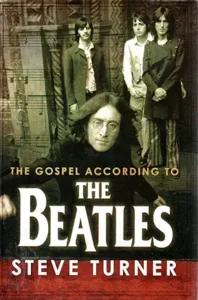 Tragically, Lennon did not survive his assassination attempt. Did he die the cynical atheist, stubbornly clinging to a belief that there’s no heaven? Perhaps not. Rock biographer, Steve Turner wrote a book, “The Gospel According to the Beatles,” that claims Lennon was drawn to Christianity late in life. According to the author, Lennon was a fan of Pat Robertson and Billy Graham.
Tragically, Lennon did not survive his assassination attempt. Did he die the cynical atheist, stubbornly clinging to a belief that there’s no heaven? Perhaps not. Rock biographer, Steve Turner wrote a book, “The Gospel According to the Beatles,” that claims Lennon was drawn to Christianity late in life. According to the author, Lennon was a fan of Pat Robertson and Billy Graham.
Even more, he wrote a song titled, “Talking With Jesus,” and even set the Lord’s Prayer to music, to the chagrin of his wife, Yoko Ono.
Let us hope these reports are true.
In the meantime, we can roll our eyes at Lennon’s song being played at Jimmy Carter’s funeral. Mr. Carter was naive when it came to abortion just as he apparently was when it came to music.
Wouldn’t it be something if John Lennon was at the pearly gates waiting to greet him!
Why do women have abortions? In the U.S., the #1 reason cited is financial concerns. (Interestingly, financial concerns are less of an issue in many smaller countries with a fraction of our GDP.)
Thought experiment: If financial concerns are a root cause of abortion, would it make sense to assume that states with a lower cost of living would have lower abortion rates?
And if that proves to be the case, wouldn’t that suggest that the pro-life movement should be concerned about government policies that unnecessarily drive up the cost of living?
Pulse checked it out.
Here are the states with the lowest cost of living
Here are the states with the highest cost of living
Notice a difference? The ten states with the lowest cost of living have an average abortion rate of 5.22 compared to 14.65 for the ten states with the highest cost of living. The link is clear. It supports surveys that reveal financial concerns are root causes of abortion.
By way of contrast, the World Population Review says that what costs you $134 in a high abortion state like California would only cost you $90 in Arkansas or Iowa, two low abortion states.
Costly public policies affect the unborn
This is why Pulse Life Advocates is concerned about public policy that goes beyond abortion. Poorly conceived policies can have significant impact on states’ sanctity of life environment.
High housing costs are key drivers of high costs of living. Business and Media (BAM) used data from realtor.com to discover that housing prices are 60% lower in Red (pro-life states) compared to Blue (pro-abortion) states. The average Blue State home sells for $322 per square foot compared to just $192 per square foot in Red States.
To drive home the point, California’s median home price is 3.3 times as much as Iowa’s (Forbes); just as their abortion rate is also 3.3 times as much as Iowa’s.
Why does California housing cost so much?
Because of public policy decisions, which are very much in the news due to the tragic fires burning in Los Angeles.
California’s largest cities limit the housing supply with restrictive zoning and building laws, reducing local housing stock.
This compels prospective home buyers to build homes beyond city limits. But these homes are often built in previously uninhabited, dry areas especially at risk for wildfires.
The lack of affordable housing is a major driver of the homeless problem plaguing California, according to a comprehensive study by UC San Francisco.
According to multiple sources, homelessness concerns prompted Los Angeles Mayor, Karen Bass, to cut the LA Fire Department’s budget by $17,553,814 and divert the savings to programs to mitigate homelessness.
At the state level, California leads the way in promoting progressive climate and environmental initiatives to address a perceived climate crisis. Their stated goal calls for carbon-free electricity by 2045. These policies drive up energy costs, especially noticeable at the gas pump.
In California, according to AAA, a gallon of regular grade gasoline goes for $4.38 compared to $2.88 in Iowa, one-and-a-half times as much. Why? Because of “environmental restrictions, higher taxes and a shrinking number of regional refiners,” according to CNN. In particular, they mandate a higher (and more expensive) grade of gasoline at the pumps than all other states.
In terms of per-capita taxation, Californians pay one-and-a-half times as much in taxes than Iowans ($9175 to $5934 per year).
How do you reduce abortion? Address root causes. One way is reduce the cost of living. That means state legislatures and their governors need to be judicious in the public policies they enact. They should focus on affordability and livability, with a mind to protecting their most precious asset: the unborn. Nothing should trump their well-being.
The 39th President of the United States, Jimmy Carter passed away yesterday at the age of one-hundred.
He first ran for president, and won, in 1976 when abortion was just beginning to be an issue in national elections. As a committed evangelical Christian, he was greatly conflicted on the abortion issue
“I don’t believe that Jesus would approve abortion except in the case of incest, rape or the mother’s life in danger. But I had to enforce the Supreme Court ruling on Roe v. Wade so I tried to do everything I could to minimize the need for abortions.”
Nonetheless, he didn’t think Roe should be overturned:
“When I was president, I announced and I still maintain that I can live with Roe v. Wade. I did everything I possibly could as president under that ruling, which I don’t think ought to be changed, to minimize the need for abortions. I think every abortion is a result of a horrible series of errors on the part of people involved.”
Unlike the leaders of his party today, Carter wanted to see abortion minimized:
“I believe that we should do anything we can to minimize abortion and not to encourage it.”
Despite his fervent belief in Christ, Mr. Carter had a tough time balancing his faith with his party’s politics:
“Jesus never mentions abortion. But I think that Jesus did care for the unborn child, I think that Jesus did care for people who were completely helpless, who depend on others for their life and livelihood. I just believe that this should be minimized if possible.”
And there’s the rub. Carter couldn’t bring himself to accept the possibility that Christ wants abortion eliminated, not minimized.
Jimmy Carter R.I.P.
By Anthony Topping, West Des Moines
What if you were never born? In the movie “It’s a Wonderful Life,” Clarence, the guardian angel, provided George Bailey the opportunity to see the impact firsthand. His brother, Harry, drowned in the pond because George was not there to save him. George never married Mary and thus they never had their children, Pete, Janie, Zuzu and Tommy.
Politicians on both sides argue their position using extreme cases. There are numerous choices that can be made prior to wanting an “abortion for convenience.” The “my body my choice” argument is not logical. Following that logic, it is perfectly fine for a woman to choose to smoke and drink while she is pregnant. Everyone would agree that smoking and drinking harms the baby, but killing the baby via abortion is the ultimate harm.
What if you were adopted? I have really thought about it because I am adopted. I could have never been born and not exist. While I haven’t made the impact like George Bailey, I do have a beautiful wife and three amazing children. It’s a Wonderful Life!
[This letter appeared in the DM Register on October 20th. Thanks to Tony Topping for permission to publish.]







